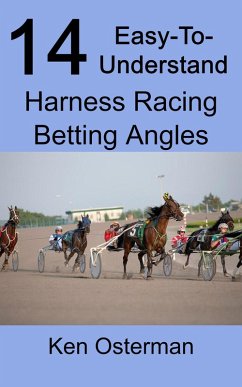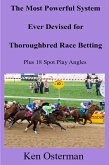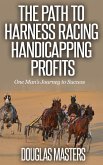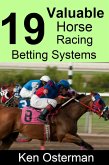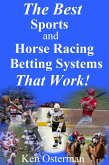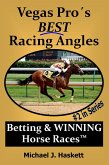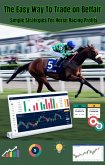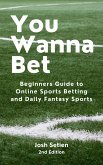Many handicappers seem to prefer to handicap an entire race card as if they are some sort of chess master, playing the races like a chess board.
And I can understand this attempt at becoming a master class handicapper. But still, I've never been a big fan of a robust method of handicapping. The type of analysis that takes into account every conceivable factor, and then weighs all of these variables to make a selection.
I have attempted this type of handicapping, but when I began to use angles for selecting winners, I found that I was spending less time handicapping, and I also discovered that I was winning at the same rate.
The angles I have written about are those I use betting at harness tracks in race books in Las Vegas. Some of the angles in this book work better at some tracks than others, but the ones I have included here work at the largest number of tracks that I have researched.
In a previous book I wrote, 19 Valuable Horse Racing Betting Systems, I explained angles for harness racing, along with thoroughbred and quarter horse angles. The three harness angles in that book have been reprinted in this book, but everything else appears here for the first time.
The rules of the handicapping angles in this book are clearly explained and easy to use.
Here is the list of the angles:
Frequent Play Angles
The Basic Elimination Method
The Quick Rating Method for Harness Racing
The Top Speed Rating Method
The Median Speed Rating Method
The Power Rating Method
Spot Play Angles
The Qualifier Advantage
Morning Line Overlay
The Non-Winners of X Races Lifetime Angle
Last Race Winner
Top Speed Rating Second Race Back
Lowest Purse Value Last 10
Top Earnings Last 4 starts
Trotter Angles
Tote Board Magic
Dieser Download kann aus rechtlichen Gründen nur mit Rechnungsadresse in A, B, CY, CZ, D, DK, EW, E, FIN, F, GR, H, IRL, I, LT, L, LR, M, NL, PL, P, R, S, SLO, SK ausgeliefert werden.

